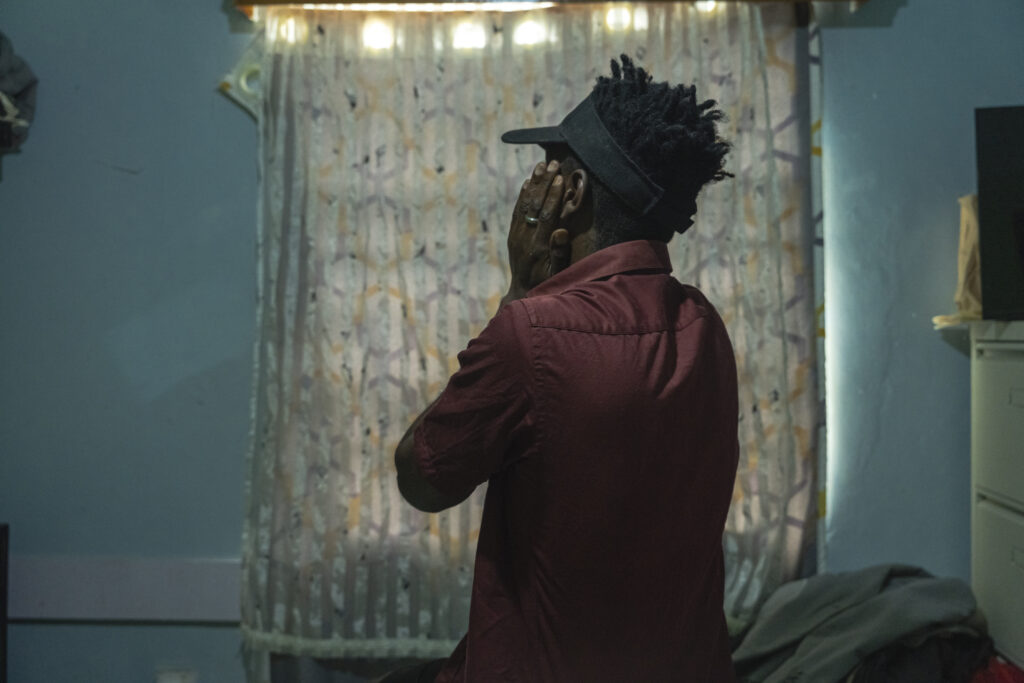Julie, a transgender woman, fled Uganda after her own family had her house burned down, but her initial hopes of finding refuge in neighbouring Kenya are fading. “My brothers incited villagers to attack me. I was physically assaulted several times,” said the 32-year-old. AFP is only using her first name to protect her.One night in April 2018, her house was set on fire. “Luckily, I was not asleep and escaped through the back door,” she said.Julie ended up in Kenya’s Kakuma refugee camp. Initially, she felt “a sense of belonging” among hundreds of other LGBTQ asylum seekers.But seven years later, she is still waiting for her asylum application to be approved. Meanwhile, the situation has only grown worse in Uganda. In 2023, it passed the Anti-Homosexuality Act, one of the most repressive laws of its kind in the world, with penalties of up to life in prison for consensual same-sex relations and death for “aggravated homosexuality”. Zuri was one of its victims. A transgender woman, she had been a high-profile advocate for the community’s rights. When the law was passed, she became a target. “I was very visible and I couldn’t hide myself anymore,” said Zuri, whose name was changed for this article. She spoke to AFP at a shelter in the Kenyan capital Nairobi run by a group of queer asylum seekers called Nature. Hidden behind a tall green fence, it houses around a dozen mostly Ugandan asylum seekers.”I was attacked at my place and almost got killed. The following morning I immediately had to leave my country and run here to Kenya.”- ‘Can also happen here’ -But Kenya, long seen as a sanctuary for those escaping discrimination, could be heading in the same direction as its neighbour.A so-called Protection of the Family Bill could be debated in the Kenyan parliament this year, proposing sentences of up to 30 years in prison for same-sex relations and calls for them to be reported.”What happened in Uganda, it can also happen here,” said Zuri. There are other problems too. Cuts to global humanitarian aid are limiting access to healthcare. The Nairobi shelter is two months overdue on its rent and facing eviction.Some have grown desperate. The Refugee Coalition of East Africa documented at least 200 LGBTQ asylum seekers who went to South Sudan, a war-torn and desperately poor country to Kenya’s north, after rumours spread that it was offering rapid clearance of asylum claims and relocation to Western countries. Some paid $1,000 to smugglers to get to South Sudan, said the coalition’s executive director Craig Paris, only to find the situation was even more dire than Kenya. “I wanted to go to Europe to restart my life but that was not to be,” one of the victims, Jeremy, told AFP. He soon gave up and returned to the Kakuma camp in Kenya, only now he had lost the pass that allowed him to travel outside the camp. “There seems to be no light at the end of the tunnel,” he said.- ‘Don’t come back’ -Kenya was praised by the United Nations’ refugee agency in 2021 as the only country in the region to grant asylum for persecution based on sexual orientation or gender identity.But that changed the same year when management of asylum cases passed from the UN to the Kenyan government, which stopped granting refugee status based on those criteria, said Paris. It came at a time when asylum seeker numbers are rising fast in the wake of Uganda’s anti-gay law, with some 4,000 queer Ugandans now in Kenya, according to Paris. Many have been in limbo for years. Without refugee status, they cannot rent apartments, work or open bank accounts. “Champagne”, a 26-year-old transgender woman, said Kenyan asylum officers tell her: “We don’t want you here. Go repent. Don’t come back.””Many are getting very tired of the process. They feel like they want to die,” said Champagne.
